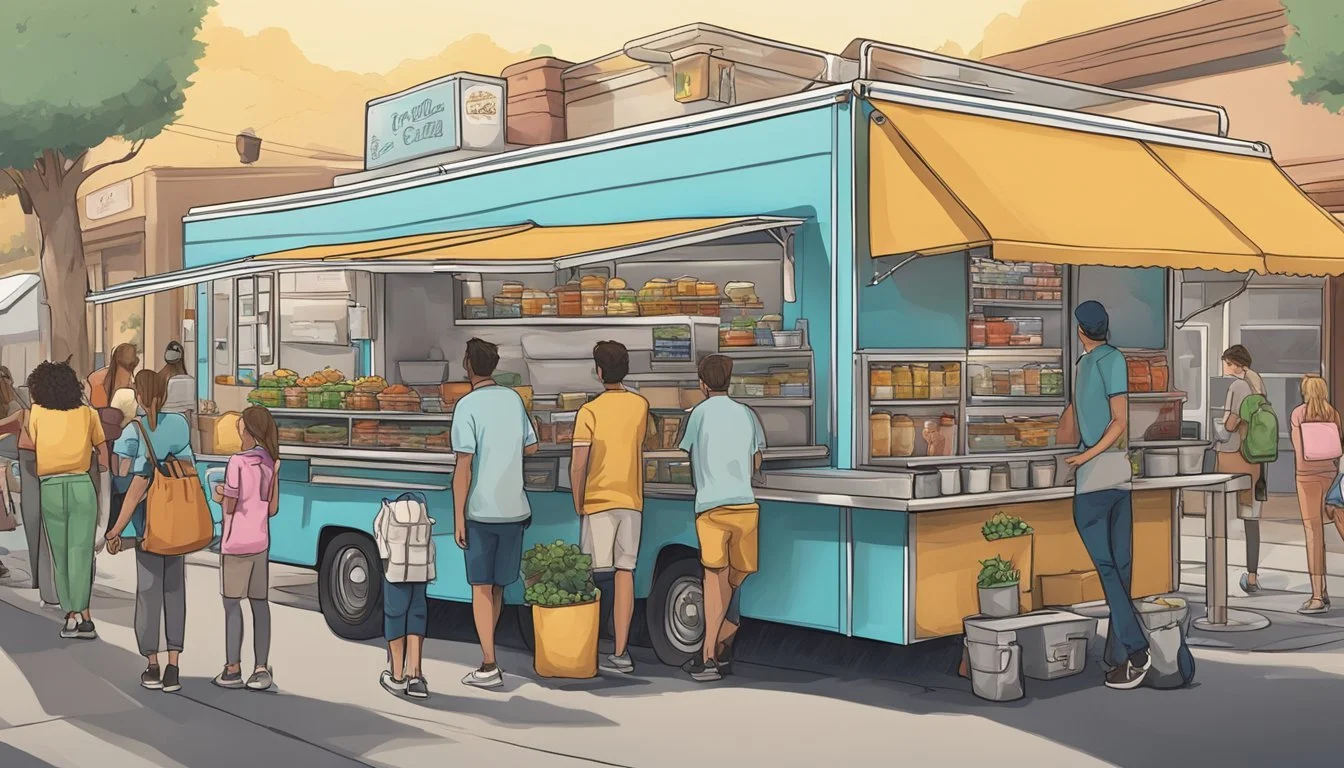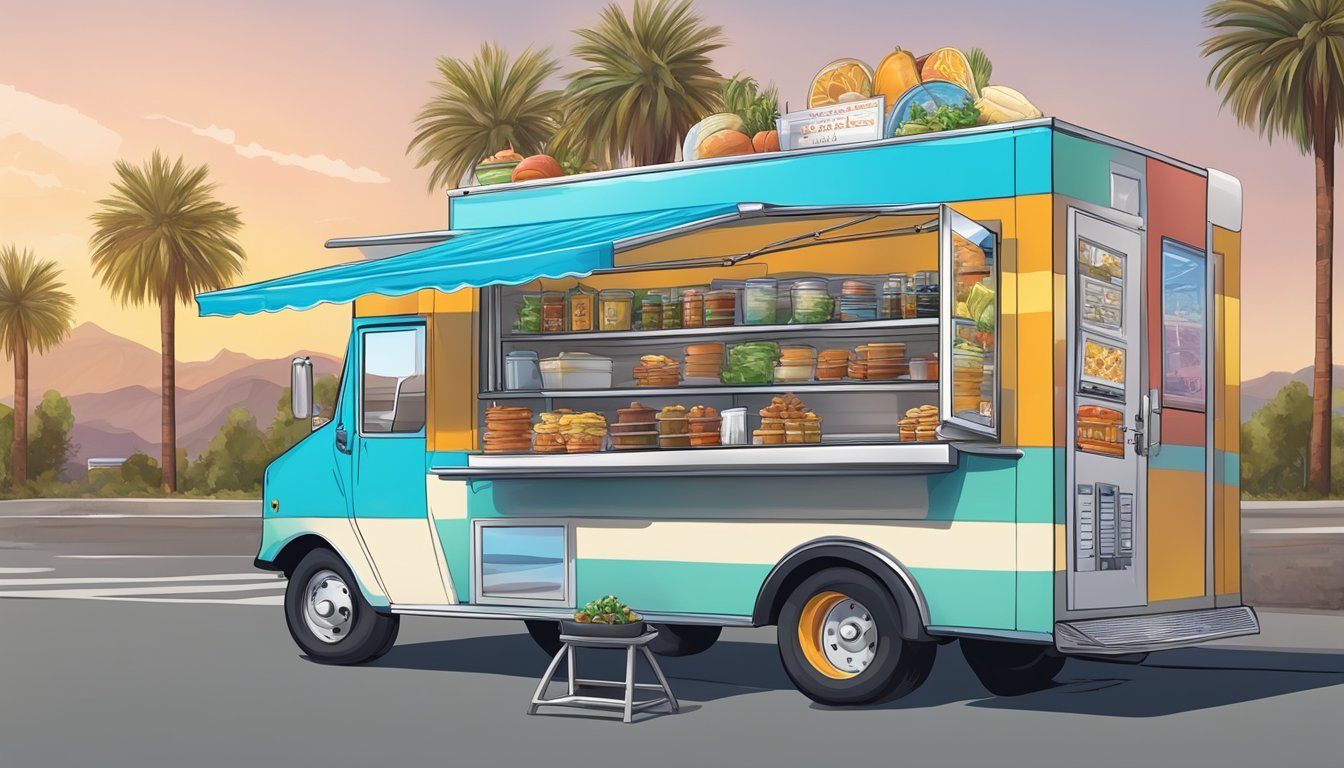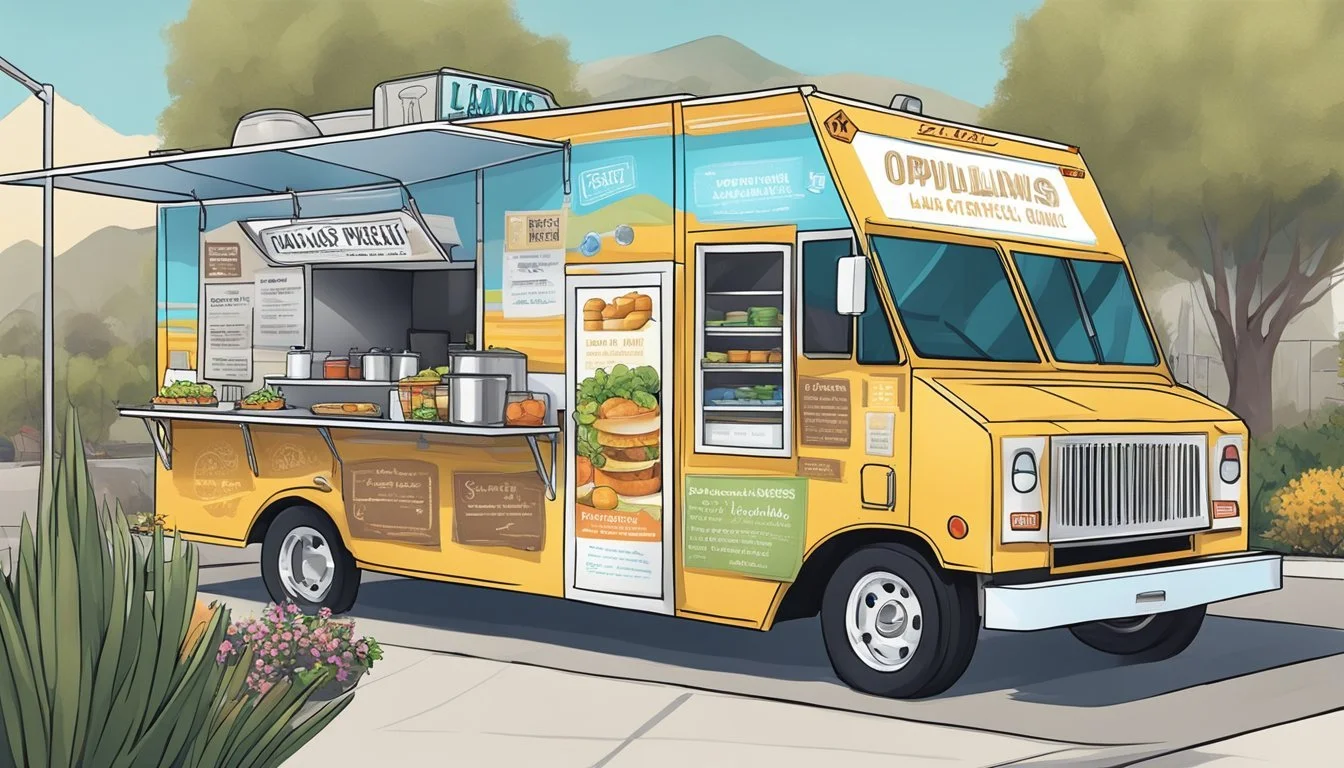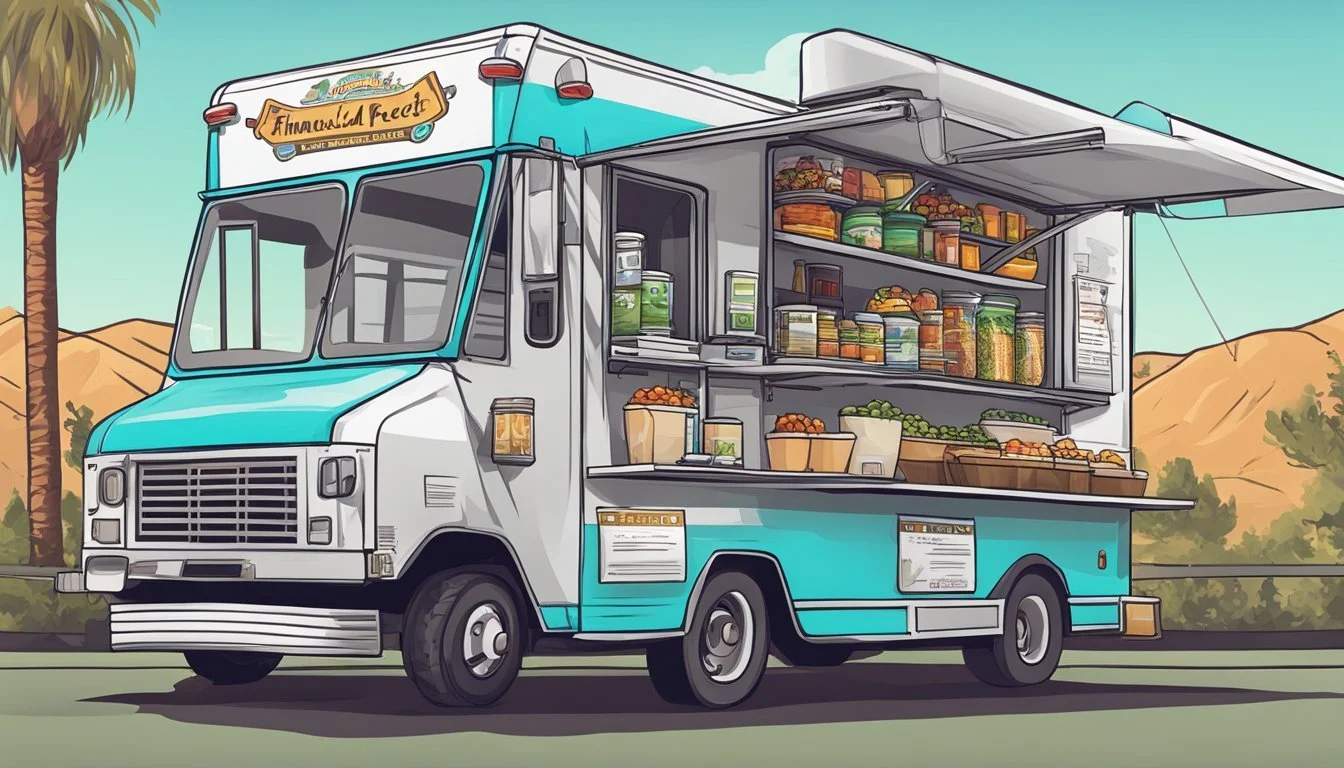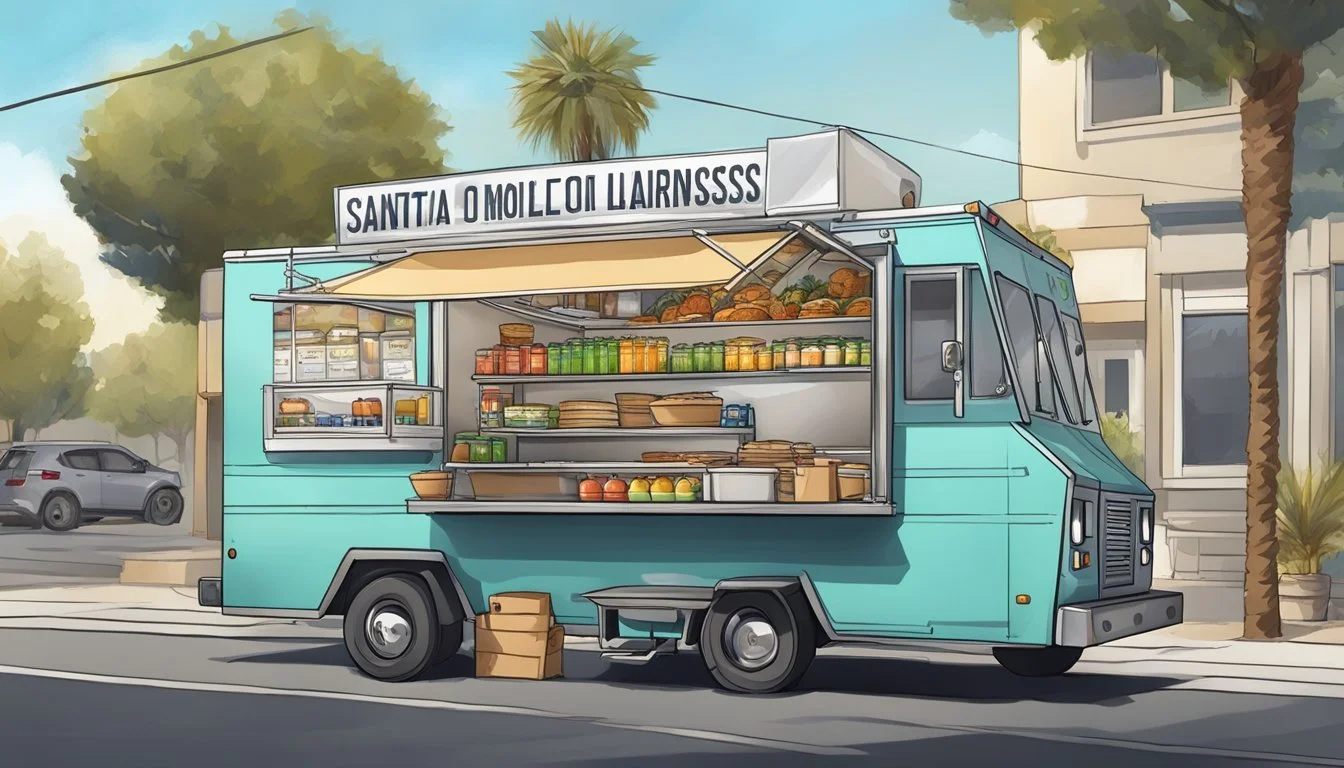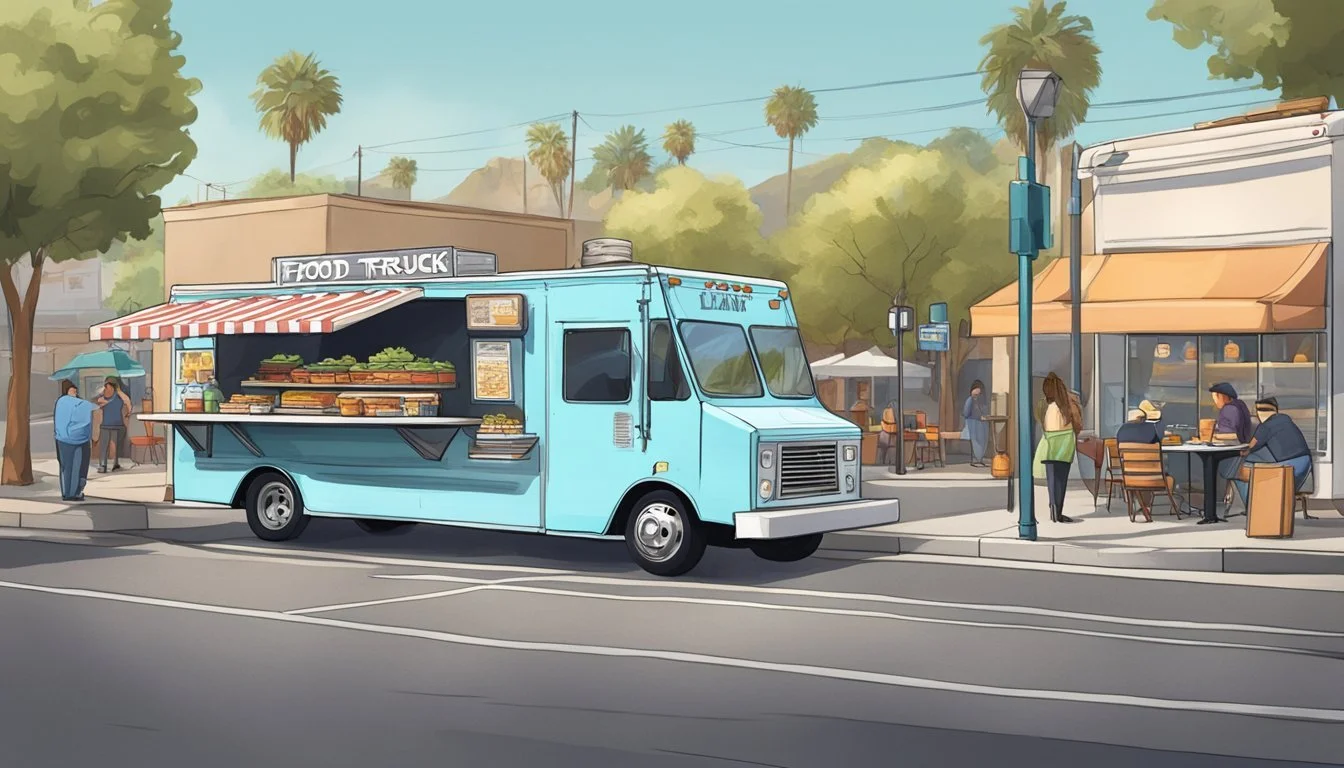Food Truck Laws Santa Clarita, California
Regulations for Mobile Vendors
Operating a food truck in Santa Clarita, California, requires navigating a series of regulations designed to ensure public health and safety. These laws cover a range of requirements from vehicle licensing to food preparation standards. As mobile food facilities, food trucks provide diverse culinary options and need to comply with both statewide mandates and local city codes. The Santa Clarita Municipal Code is a crucial reference for anyone looking to understand the specific ordinances that apply within city limits.
In Santa Clarita, as in the rest of California, food trucks are subject to several permits and licenses before they can legally serve the community. This includes having a proper vehicle license, which could vary depending on whether a commercial driver's license is required, as well as obtaining a food handling permit which necessitates a food safety course in some instances. Each food truck must have an individual with a food handling permit on-site during hours of operation, ensuring that food safety practices are adhered to at all times. Entrepreneurs interested in running a food truck business in California must be well-informed about these regulations to avoid any legal complications.
The local health department's rules must also be observed, which outline the specifics of food preparation, storage, and sale. For example, the Los Angeles County Department of Public Health provides guidelines that are also applicable to food trucks operating within the Santa Clarita region. Inspections ensure that these mobile facilities meet the stringent standards set for food safety, mirroring the expectations placed upon traditional restaurants. Food truck owners and operators must therefore be vigilant in maintaining compliance with these regulations to successfully and sustainably run their mobile food businesses.
Getting Started
Before launching a food truck in Santa Clarita, it is crucial to understand the legal framework, develop a solid business plan, and select the right business structure for long-term success.
Research Local Laws
In Santa Clarita, food truck operators must comply with specific legal requirements. This includes acquiring a vehicle license for the food truck and understanding local zoning and parking restrictions. Operators may also need a food handler's permit, which mandates at least one certified individual present during business hours. It's imperative to check with the California Department of Housing and Community Development for any classifications pertinent to mobile food vehicles that could impact registration and titling.
Creating a Business Plan
A thorough business plan is essential for a food truck's success. This plan should outline the food truck's concept, menu, target market, operating costs, and projected revenue. It should detail the marketing strategy and operational procedures, as well as provide an analysis of competitors in Santa Clarita's food truck market.
Choosing a Business Entity
Selecting the correct business entity is critical for liability and tax purposes. Options include a sole proprietorship, partnership, or limited liability company (LLC). An LLC is often preferred for its limited liability protection, separating personal assets from the business's liabilities. On the other hand, a partnership might be suitable for collaborative ventures, requiring a partnership agreement that outlines each partner's responsibilities and profit distribution.
Legal Requirements
Starting a food truck business in Santa Clarita requires careful consideration of various legal requirements to ensure compliance with city and state regulations.
Obtaining Licenses and Permits
To operate a food truck in Santa Clarita, one must obtain the necessary licenses and permits. This includes a business license from the city and a permit to operate from the Los Angeles County Department of Public Health. A reseller permit and tax identification number are also crucial for tax purposes, while an employer identification number (EIN) is needed if the business has employees.
Health Department Regulations
The health department oversees food facility standards ensuring public safety. Food trucks must pass an inspection to receive a public health permit. Adhering to health department regulations involves maintaining strict food safety practices and cleanliness.
Commissary usage: All food trucks must be associated with a commissary, a licensed commercial kitchen where they can safely prepare and store food.
Food Safety Certification: At least one employee must hold a valid food safety certification.
Certifications and Inspections
Certifications ensure that food truck operators are trained in food safety and sanitation. Regular inspections are conducted by the health department to ensure that food facilities meet the necessary safety standards. These inspections are crucial as they are tied to the renewal of the health permit. Additionally, food trucks are subject to specific restrictions in terms of parking and operation zones within Santa Clarita city limits.
Operational Concerns
Food truck operators in Santa Clarita, California, must navigate a thorough set of laws encompassing various facets of their business, from the day-to-day operational elements to strict health and safety regulations. Adherence to these laws is crucial for running a legitimate and successful mobile food facility.
Selecting and Equipping Your Food Truck
Selecting the right food truck requires a keen understanding of both the local California regulations and the specific needs of one's menu and operations. Equipment within the truck must meet state-approved food safety standards to ensure efficient and safe food handling. From kitchen supplies to a properly designed prep kitchen, every detail must contribute to the efficient workflow and adherence to regulations.
Parking and Location Regulations
Parking regulations in Santa Clarita are stringent. Mobile food vendors need to be acutely aware of designated zones and permissible hours for operation. This impacts not only where a truck can sell food but also informs decisions about inventory management and marketing strategies. Obtaining a mobile food facility permit is essential to navigate these parking and location constraints legally.
Handling Food Safely
Food safety is a top priority, and it encompasses meticulous food handling procedures and the proper disposal of waste. Staff must possess up-to-date food handling permits and partake in state-approved food safety courses. Every action, from sourcing vendors to preparing and serving state-approved food, must comply with California's health and safety laws to ensure consumer protection and business integrity.
Financial Aspects
The financial aspects of operating a food truck in Santa Clarita, California, require careful planning and management. From setting up a payment system to handling taxes, business owners need to ensure their financial operations run smoothly to foster a successful endeavor. This section details the essentials on financial mechanisms and tax considerations.
Setting Up a Payment System
To accept payment for delicious street food, food truck owners must establish an efficient payment system. They should consider the benefits of digital transactions, which are becoming increasingly prevalent. For instance, mobile payment solutions like Square or PayPal can accommodate quick and secure sales. A robust payment system should include hardware to process credit and debit cards, software for sales tracking, and packaging options for customers who prefer contactless pickups. Food truck owners should also evaluate their credit profile to access favorable financing terms for such systems.
Accessing Funds and Handling Taxes
Access to funds is crucial, and food truck operators may explore the California Small Business Loan Guarantee Program for backing when traditional financing falls short. A solid business plan is indispensable in these scenarios, especially to attract investors or secure additional funding. Operators that transition from a brick-and-mortar restaurant should assess how shifting to a mobile platform might impact their financing needs.
When it comes to taxes, food trucks in Santa Clarita must collect and remit sales tax in compliance with California's tax laws. Accurate recording and timely payment of sales tax are important, as inconsistencies can lead to penalties. Food truck owners should utilize accounting software or consult tax professionals to manage these financial responsibilities effectively.
Marketing and Growth
In the competitive landscape of Santa Clarita’s food industry, mobile food vendors must deploy targeted marketing strategies and leverage growth opportunities. Food truck businesses need to differentiate their brand and offerings to thrive amongst diverse competitors.
Promoting Your Food Truck
A successful food truck not only offers great food but also excels in effective promotion. Utilizing social media platforms to showcase menu specials can create buzz and attract customers. Additionally, announcing locations and schedules in advance enhances visibility. Food truck owners often cater to events; these opportunities serve as both revenue streams and marketing channels, introducing the truck to new patrons.
Competing with Brick-and-Mortar and Other Food Trucks
Food trucks in California face stiff competition from brick-and-mortar establishments and fellow mobile eateries. To compete, it’s crucial to offer a unique value proposition, such as signature dishes, exceptional service, or innovative ordering methods. Building partnerships and attending local festivals can increase a truck's presence. Constantly analyzing competitor strategies and customer preferences delivers insights for tactical adjustments in menu offerings and marketing tactics.
Compliance
In Santa Clarita, California, food truck operators must meticulously maintain up-to-date licenses and permits, and rigorously adhere to sanitation and food safety standards to ensure legal compliance and safe operations.
Maintaining Licenses and Permits
Every food truck in Santa Clarita is required to acquire and maintain certain licenses and permits. Operators must first obtain a vehicle license, and depending on the gross vehicle weight rating, a commercial driver's license might be needed. In addition, a food handling permit is essential for food truck employees, ensuring at least one permitted individual is on-site during business hours. Furthermore, a business license and seller's permit are needed to conduct sales within the city legally. Non-compliance can result in fines or the shutting down of operations.
Adhering to Sanitation and Food Safety Standards
Sanitation and food safety regulations in Santa Clarita are designed to protect public health. This requires food truck operators to implement and follow strict food safety practices. With the introduction of the California Senate Bill 972, there are specific provisions under the California Retail Food Code for food trucks, known as Compact Mobile Food Operations (CMFO). Food trucks must also undergo regular health inspections to ensure they meet sanitation guidelines, such as proper waste disposal and clean food preparation areas. Compliance is monitored through these inspections, and consistent adherence promotes a safe dining experience for customers.
Logistical Considerations
When launching a food truck in Santa Clarita, one must meticulously plan logistics, from securing a commercial kitchen for prep work to managing the intricate facets of supply and inventory. These components are crucial for efficient operations, adhering to regulations, and sustaining quality service.
Utilizing a Commissary or Commercial Kitchen
A food truck operator in Santa Clarita needs to use a commissary or commercial kitchen for food preparation to comply with local health department regulations. This supports food safety and hygiene practices, ensuring the truck's menu offerings are both safe and appetizing for consumers. Some commercial kitchens are equipped with additional amenities like wrap stations for sandwiches and specialized storage, as well as access to a bathroom for keeping up with health standards. Operators must also consider the logistics of traveling to and from the commercial kitchen, as it affects prep time and fuel costs.
Dealing with Supply Chain and Inventory Issues
Effective inventory management is pivotal for controlling costs and preventing food waste. Food truck owners should have a robust system in place for tracking ingredients, which directly impacts the crafting of their menu. In circumstances where supply chain disruptions occur, owners have to be astute in sourcing alternative suppliers without sacrificing the quality of their offerings. They must also anticipate fluctuations in demand, which is where a good relationship with suppliers and catering services can offer some flexibility. Operating on private property might come with additional logistical considerations like ensuring consistent delivery of inventory without interruptions.
Additional Considerations
When running a food truck in Santa Clarita, protecting one's business and building a strong brand are essential. Operators should be aware of the risk factors including theft, and legal necessities such as trademarks and sales tax registration.
Protecting Your Business
A crucial aspect of security for food truck operators is guarding against theft. They should invest in comprehensive security systems, such as CCTV and GPS tracking for their trucks. Additionally, securing a business address that is separate from personal residence can safeguard personal information and contribute to professional correspondence and documentation.
It is imperative to safeguard intellectual property through trademark registration. This action prevents unauthorized use of the business's name and logo. Food truck operators must also be diligent in handling sales tax – they need to obtain a seller's permit from the California Department of Tax and Fee Administration and regularly report and pay the collected tax.
Building Your Brand
Developing a recognizable and respected brand is vital. This involves not only a catchy name and a visually appealing design but also adhering to promised quality and service. Branding extends to every part of the business, from the aesthetics of the truck to the presentation of food and the uniformity of employee attire.
A distinctive brand with a trademarked logo reinforces the business's presence in the market. Marketing strategies, such as an online presence through a well-maintained website and active social media accounts, help in increasing visibility and customer engagement. They should also consider partnerships with local businesses or events to widen their brand reach.


